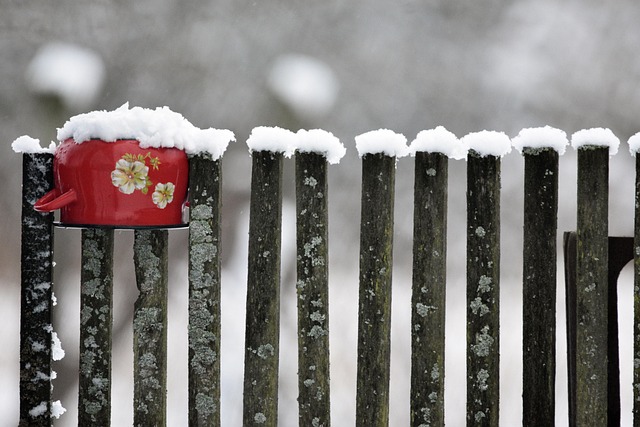Coastal areas present unique challenges for fencing due to harsh weather conditions, including high winds, salt mist, and extreme temperatures. Durable wooden fencing offers a sustainable and aesthetically pleasing alternative to traditional materials. This article explores how understanding coastal weather’s impact on fencing can guide you in selecting the right wood species and installation techniques to ensure longevity in saltwater exposure. By adopting these practices, homeowners can enjoy long-lasting, beautiful fences that withstand the rigors of the coast.
- Understanding Coastal Weather's Impact on Fencing
- Benefits of Durable Wooden Fencing Materials
- Choosing the Right Wood Species for Coastal Environments
- Installation Tips for Longevity in Saltwater Exposure
Understanding Coastal Weather's Impact on Fencing
Coastal areas are known for their harsh and ever-changing weather conditions, which can significantly impact outdoor structures like fencing. Strong winds, salty air, frequent storms, and rising sea levels pose unique challenges when it comes to choosing fencing materials. Traditional wooden fences often struggle to withstand these elements, leading to rot, warping, and premature deterioration. Understanding how coastal weather affects fencing is the first step in selecting a durable solution for your property.
The salt content in seawater can accelerate the aging process of wood, causing it to become brittle and weak over time. Additionally, the constant exposure to high humidity levels contributes to mold and mildew growth, further compromising the fence’s structural integrity. In such environments, regular maintenance is often insufficient, requiring materials that are inherently resistant to these specific coastal hazards.
Benefits of Durable Wooden Fencing Materials
Durable wooden fencing materials offer an attractive and functional solution for coastal areas, where traditional fences often face challenges from harsh weather conditions and salty air. The primary benefit lies in their ability to withstand extreme environments, ensuring longevity and minimal maintenance over time. Unlike other materials that might corrode or become brittle, treated wood can resist decay caused by moisture and salt, making it an ideal choice for coastal properties.
Additionally, these fences contribute to the overall aesthetic appeal of a coastline. Natural wooden barriers blend seamlessly with the surrounding environment, complementing the beauty of the sea and sand without appearing industrial or intrusive. This harmonious design not only enhances the curb appeal of coastal homes but also promotes a connection between residents and their natural surroundings.
Choosing the Right Wood Species for Coastal Environments
When selecting wood for coastal fencing, understanding the unique challenges posed by salt air and moisture is key. Not all woods are created equal in this regard; some species are better suited to withstand the harsh coastal environment than others. For instance, treated cedar is a popular choice due to its natural resistance to rot and insects. This durable wood can last for decades without significant deterioration, even when exposed constantly to salty air and rain.
Consider also exotic hardwoods like ipe or teak, which offer exceptional resilience to moisture. These woods have dense grains that repel water effectively, preventing the absorption of salt and moisture that could lead to rot. Furthermore, their natural oils act as a protective barrier against UV rays from the sun, extending the lifespan of your fencing even in coastal areas with year-round sunshine.
Installation Tips for Longevity in Saltwater Exposure
When installing wooden fencing in coastal areas with high saltwater exposure, a few key tips can significantly enhance longevity. First, ensure proper preparation of the fence posts by treating them with marine-grade preservatives or wrapping them in protective coatings designed for underwater applications. This prevents wood rot and corrosion caused by salty air and moisture.
Second, choose fencing materials that are naturally resistant to saltwater damage, such as treated cedar or other durable hardwoods. Use stainless steel hardware instead of regular screws or nails to avoid rusting, which can weaken the fence over time. Regular maintenance, including pressure washing and reapplying sealants, is crucial to protecting the wood from ongoing exposure to saltwater.
